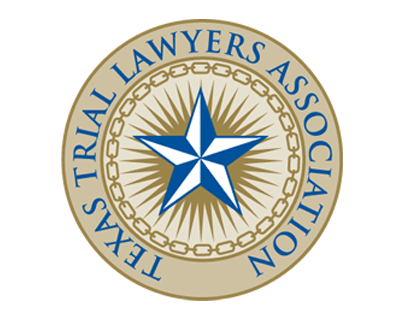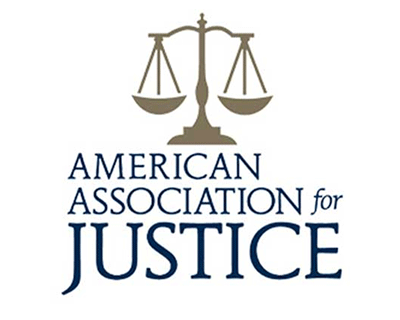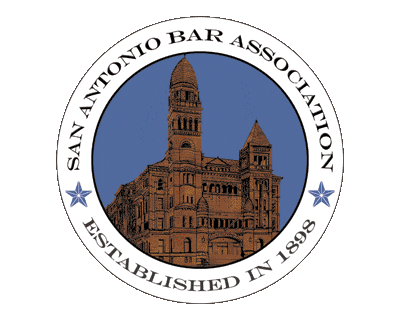Wrongful Death Lawyer

Almost any type of accident, whether caused by negligence, or by recklessness, may result in an unintended death. It might be from a simple automobile accident or from an accident involving a drunk driver. It could even be the result of a medical mistake, or from the use a dangerous product.
But, if such a tragedy occurs in your family in Bexar County or in San Antonio, you need to be aware that Texas laws provide a way for certain family members to receive compensation for the financial loss, and emotional distress caused by the loss of a loved one. These types of claims are referred to as “Wrongful Death” claims.
What is a Wrongful Death?
Most have heard the term “wrongful death,” but as experienced wrongful death attorneys we often get asked what it actually means. Simply stated, a wrongful death is when a person is killed because of the negligence, misconduct, or recklessness of another person.
How Wrongful Death Occurs
Wrongful death can occur in a lot of different ways, but the most common are:
- Motor vehicle collisions, car accidents, motorcycle accidents, and bus accidents: When another driver is negligent and causes an accident that results in the loss of life, the negligent party is probably responsible for the wrongful death of the deceased individual.
- Trucking & commercial vehicle crashes: Trucking accidents and 18 wheeler accidents are often fatal because of the nature and size of commercial trucks. When company employees act negligently and cause the loss of human life, the company that employs them can be held responsible for the wrongful death of the deceased.
- Medical malpractice : The negligence of doctors, nurses, and hospital staff is a frequent cause of wrongful death in the U.S., and in Texas. Hospitals, doctors, and their staff can be found liable for wrongful death if their negligence caused the loss of human life.
- Nursing home neglect or abuse: Nursing home neglect and abuse is also a leading cause of wrongful death. Neglecting to supervise or provide proper medicine and medical care to residents of a nursing home can lead to death.
- Prescription drug defects: Interactions to dangerous and defective drugs can also be the cause of wrongful death. Drug companies have been found to put profits over people, which may cause them to push drugs to market that are unsafe. In some instances, these dangerous medications can lead to death.
- Defective products: When companies are negligent and create products that are unsafe, such as poorly designed gas tanks (Ford Pinto), or seat belts that break, it exposes the users of those products to an extreme degree of risk, which can lead to death.
Who Can File a Wrongful Death Claim in Texas?
The Texas Wrongful Death Act superseded the common-law rule that prohibited surviving spouses, parents, and children from suing for actual damages arising from another person’s death, and created a group of people who, by law, can sue for the death of a loved on. These people are referred to as “Statutory Beneficiaries.”
In Texas, statutory beneficiaries who are able to sue for the death of a loved one must generally be either a spouse, child, or parent of the deceased person. Depending on the circumstances, an executor or administrator of the deceased person’s estate may also file suit on behalf of the deceased person.
How Do I Know Whether I Have a Wrongful Death Case?
In Texas, a wrongful death claims a claim that certain family members can bring if another person recklessly or negligently causes the death of a family member.
Elements of Texas Wrongful Death Claim
To have a wrongful death claim in Texas under the Texas Wrongful Death Act, you need the following elements:
- The plaintiff is a statutory beneficiary of the decedent.
- The defendant is a person or corporation.
- The defendant’s wrongful act caused the death of the decedent.
- The decedent would have been entitled to bring an action for the injury if he or she had lived.
- The plaintiff (statutory beneficiary) suffered actual injury.
Statutory Beneficiary Requirement
Simply put, in Texas to be a “statutory beneficiary,” the plaintiff must be either a spouse, child, or parent of the person who was killed. These are the only people who can bring a wrongful death claim in Texas. Unfortunately, siblings and close friends are excluded from making wrongful death claims in Texas.
Actual Injury
Another confusing element of the Texas Wrongful Death Act is the requirement that the plaintiff (statutory beneficiary) suffered an “actual injury.”
Texas statute and courts have defined actual injury as damages the plaintiff actually suffered. Generally, there are four basic types of damages recoverable in a wrongful-death action: (1) pecuniary losses (money), (2) mental anguish, (3) loss of companionship and society, and (4) loss of inheritance.
What Evidence Do I Need To Prove My Wrongful Death Case?
To prove a wrongful death case in Texas, there are several elements that you will need to prove in order to win your case. Generally, you’ll need to prove the following:
- You are a statutory beneficiary of the person who died: Under the Texas Wrongful Death Act, the person filing the lawsuit must be a The plaintiff must be a spouse, child, or parent of the deceased person,
- The defendant’s wrongful act caused the death of the decedent: This means that you must show that the defendant(s) did something wrong (i.e. reckless or negligent), and that the wrongful conduct caused the death of your loved one.
- You suffered “actual damages.” Under Texas law, you must provide evidence that you suffered actual damages connected with the loss of your loved one.
Actual damages can include: (1) pecuniary losses, (2) mental anguish, (3) loss of companionship and society, and (4) loss of inheritance. Pecuniary damages generally refers to money or income, but can include loss of the decedent’s earning capacity, advice, counsel, services, care, maintenance, and support.
Mental anguish generally refers to mental anguish is the emotional pain, torment, and suffering that the plaintiff would, in reasonable probability, experience from the death of a family member.
Loss of Companionship generally refers to the positive benefits flowing from the love, comfort, companionship, and society the plaintiff would, in reasonable probability, have experienced if the decedent had lived, and Loss of Inheritance generally refers to the present value that the decedent would, in reasonable probability, have added to the estate and left at natural death to the statutory wrongful-death beneficiaries but for the wrongful act causing the premature death.
Proving Negligence or Recklessness of Defendant – Not As Easy As It Sounds
Unfortunately, if a loved one has been killed by the wrongful conduct of another person you will find that proving that the at-fault person acted negligently or recklessly isn’t as easy as one would think.
This is especially true when a business or insurance company is involved. Businesses and insurance companies employ teams of wrongful death attorneys and investigators whose sole job is to pay as little as possible to victims and families of those killed in wrongful death situations. While they may say all of the right things, and offer condolences, you are kidding yourself and setting yourself up for disappointment if you think that the insurance company or its adjusters will treat you fairly – their single goal is to pay you nothing if they can, and if they must pay, to pay as little as possible.
Compensation for Wrongful Death
If a loved one has been killed as a result of another person’s bad conduct, the deceased person’s family may be entitled to damages, which can include:
- Lost Wages & Support: The money that the deceased person would have continued earning to support his or her family. If the deceased person had children who relied upon him or her for support may be entitled to compensation for the support they would have received.
- Medical & Funeral Expenses: The family of the deceased (or the representative of the deceased person’s estate) may also be entitled to compensation for medical and funeral expenses.
- Pain & Suffering: If the type of injuries that caused the person’s death were such that the person endured pain and suffering prior to their death, the deceased person’s estate can also recover for this pain and suffering.
- Additional Damages: There are also other damages that can be recovered by certain family members depending on the circumstances.
Wrongful death cases are complex, and usually involve working with many different persons, including investigators, engineers, reconstruction experts, medical experts, life care planners, and economists. And, although Texas wrongful death cases are complex, they are very rewarding for us because a successful result positively affects the lives of the deceased victims family, and helps provide closure.
When bringing a wrongful death claim, there are many issues that must be addressed, typically by a wrongful death law firm, such as:
- In Texas, wrongful death claims may only be brought by certain family members.
- What type of damages may be recovered as a result of the wrongful death?
- Can you recover punitive damages in a Texas wrongful death case?
- How are damages to be divided among those participating in the wrongful death suit?
Because of complex nature of wrongful death cases, they are among the most challenging to prepare, and even more challenging to win – which is why you need experienced wrongful death lawyers in your corner. At Barrus Injury Lawyers, we help family members of wrongful death victims just like you and we know the enormous difficulties presented by your situation.
Texas Wrongful Death Law Firm
We understand that no amount of financial payment can every truly compensate you for the loss of a loved one. However, holding the negligent party responsible can provide a sense of justice, peace, and closure to survivors. Mr. Barrus knows from experience the pain and devastation that comes from the wrongful death of a loved one.
Immediately following a wrongful death, family members are grieving, and often don’t consider a wrongful death claim as an urgent matter. However, there are specific timelines that must be followed or you could forever lose your right to pursue justice for your loved one’s death. Although it may be difficult, you should consider discussing your claim with an experienced wrongful death attorney as soon as possible.
The laws involved in wrongful death cases are complicated and vary by state, and according to the circumstances and claims involved. If someone you love has been killed because of the negligence of another, you will need the help of an experienced wrongful death lawyer to help you. At Barrus Injury Lawyers, we have the experience, resources, and dedication to help you receive the monetary damages you are entitled to, and to pursue justice against the persons responsible. Our job is to fight for you and your family while you grieve and work to put your life back together. Call us today at (210) 796-0105 so we can start fighting for you.
Some of the cities in Bexar County which our wrongful death law firm serves include: San Antonio, Kirby, Leon Valley, Converse, Live Oak, Universal City, Schertz, New Braunfels, Pleasanton, Seguin, Canyon Lake, Hondo, San Marcos, Kyle, Kerryville and Lockhart.












